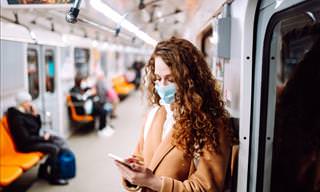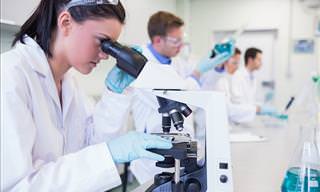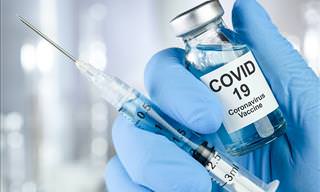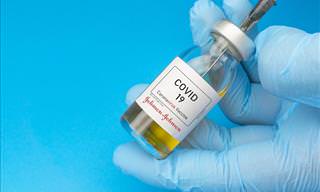The most common fear against the COVID-19 vaccines at present is that they are not safe because they were developed and tested so quickly. Yes, the development of the vaccine was indeed rushed but that was because the world was facing a serious emergency. It doesn’t mean that the companies shunned safety protocols or performed insufficient testing.
The Pfizer vaccine was tested on around 43,000 participants and showed a 95% efficacy rating with no significant safety concerns. Similarly, the results from the advanced trials of over 20,000 people of the Oxford/AstraZeneca vaccine have been assessed by independent scientists and have been found to be safe and effective.
Moreover, before a vaccine can be approved for emergency use authorization, all vaccine manufacturers will have to track half the participants from their trials for two months after injection. Post that, the vaccine will have to go through a safety review by the federal authorities before it reaches the general public.
So, yes, while the process has been expedited since this was an emergency situation, no shortcuts have been taken. To shorten the timeframe, a lot of resources were used but the vaccines have still gone through the traditional phases of any trials. Thus far, we have no concrete reasons to believe that any of the COVID-19 vaccines will be unsafe.
Myth 2: The COVID-19 vaccine will give you COVID-19
There’s a growing perception going around that the COVID-19 vaccine will give you COVID-19, but all leading health experts have refuted these claims. Just like the flu vaccine can't give you the flu or you can't get HPV from the HPV vaccine, the COVID-19 vaccine cannot give you the disease.
"Some people may believe that as soon as you are vaccinated you are protected from the disease and that is not correct. When you get vaccinated, we have to wait for something called seroconversion," says Dr. Thomas J. Duszynski, the director of epidemiology education at Indiana University. During seroconversion, your body identifies the vaccine contents as an intruder and thus begins to build up an attack. Eventually, your body develops antibodies that protect you from the virus.
This process, however, takes many weeks. Meanwhile, if in that short period after you’ve just got the COVID-19 vaccine you are also exposed to the virus, you could still get the disease. While unfortunate, it is by no means a direct result of getting vaccinated.
Myth 3: The COVID-19 vaccines could alter your DNA
The most absurd and troubling myth that has been doing the rounds in recent months is that an mRNA vaccine can alter an individual’s genetic code. This isn’t true because, well, it’s not even possible. But what is mRNA? Many of the newly developed vaccines use a fragment of the virus's genetic material - called messenger RNA. mRNA stands for messenger ribonucleic acid that plays an important role in human biology, particularly in a process known as protein synthesis. It’s a single-stranded molecule that transports genetic code from DNA in a cell’s nucleus to the cell’s protein-making machinery. This is where the confusion appears to have stemmed from.
The truth, however, is that messenger RNA does not interact with your DNA at all. In fact, the COVID-19 vaccines that use mRNA assist the body’s natural defenses to help develop immunity to the disease.
"mRNA is not able to alter or modify a person’s genetic makeup (DNA). The mRNA from a COVID-19 vaccine never enters the nucleus of the cell, which is where our DNA is kept," the Centers for Disease Control and Prevention (CDC) has stated.
A genetic modification would require the intentional injection of foreign DNA into the nucleolus of our cell. Vaccines aren’t capable of that.
Myth 4: The vaccine will make you more vulnerable to other illnesses
Historically, vaccines haven’t resulted in immune suppression that would leave humans vulnerable or in danger to other diseases. While the infection may suppress one’s immune system and adversely affect the host's ability to stimulate antibody production, the vaccines are likely to promote adaptive immunity. Adaptive immunity refers to the immunity that occurs after exposure to an antigen from vaccination or from a pathogen like the SARS-CoV-2 virus.
Moreover, most of the COVID-19 vaccines under development don’t contain live viruses that could make you sick. The vaccines will simply trigger the body to identify the virus protein so that our immune system can prepare a response to it.
Myth 5: COVID-19 vaccines have dangerous side effects
mRNA vaccines were first tested in humans in 2013. Early-stage clinical trials using mRNA vaccines have been conducted for influenza, Zika, rabies, and cytomegalovirus (CMV). Thus far, no serious side effects have been reported from it. In the early phase studies of the COVID-19 vaccines being developed currently, about 15% of the participants experienced short-lived, mild symptoms. Some of those included headaches, chills, fatigue, muscle pain, or fever for a couple of days. These symptoms aren’t unnatural and are a normal response to vaccines. Also, the vast majority of these adverse effects occur within the first few weeks after vaccination. So, any major health concerns are likely to be caught in the first six weeks.
It is important to understand here that once a vaccine enters our body, our innate immune system recognizes the invader and sounds an alarm. Thus, the elevated temperatures, headaches, or body aches you might experience is not because you are ill but because the vaccine is triggering an immune response.
So far, no potentially dangerous or long-term side effects have been reported from any of the COVID-19 vaccine trials and hence there's no reason to assume anything.
Myth 6: There won’t be any need to wear a mask after a person gets vaccinated for COVID-19
At present, there isn’t sufficient data to say if those vaccinated can still carry and transmit the virus to others. Thus, until more is understood about how the COVID-19 vaccine works it is vital that we continue following all the safety norms, including wearing our face masks. Furthermore, while the vaccines are likely to be effective, none of them will be 100% successful. Mask-wearing will hence need to be followed till a significant number of people are vaccinated.
Myth 7: If someone has had COVID-19 already, they don't need the vaccine
It is true that people, who have had COVID-19 once, develop antibodies. However, those antibodies can be short-lived, and people can be reinfected by the disease.
“At this time, experts do not know how long someone is protected from getting sick again after recovering from COVID-19," says the CDC. "The immunity someone gains from having an infection, called natural immunity, varies from person to person. Some early evidence suggests natural immunity may not last very long."
Experts have therefore stressed that until more is understood about how well the COVID-19 vaccine works, even those who have had COVID-19 once should get the shot.
Myth 8: The COVID-19 vaccine will completely stop the pandemic
Many have started to believe that the production of a vaccine will completely end the pandemic and we will be able to get back to our normal lives just like before. This isn’t true. A successful vaccine will certainly help in protecting us from the coronavirus and minimizing COVID-19 deaths. But there’s still a long time to go before this pandemic can be completely stopped.
Firstly, not everyone would agree to get vaccinated because of various reasons. Also, it is impossible to get every single person vaccinated simultaneously. That will take time and until then we will have to continue following the safety measures and hope that the vaccine helps in reducing the risk of transmission considerably over time.
Share these myths with your friends and family to keep them aware
 Go to BabaMail
Go to BabaMail




























































